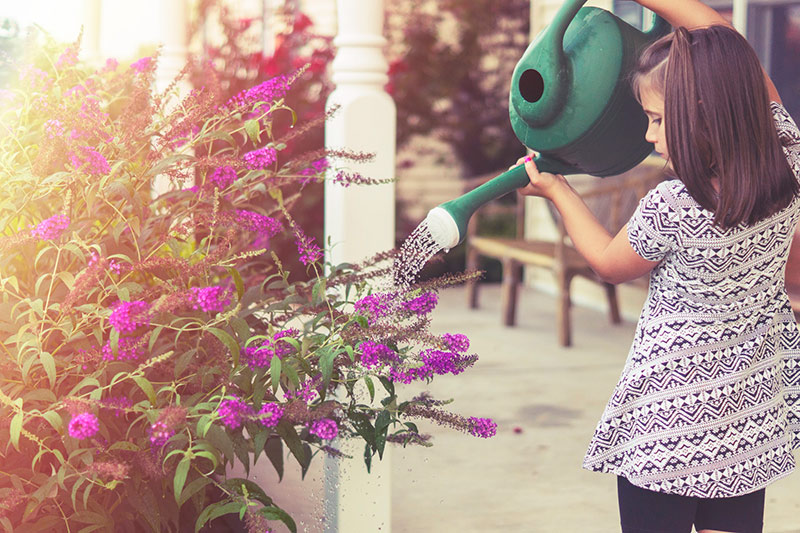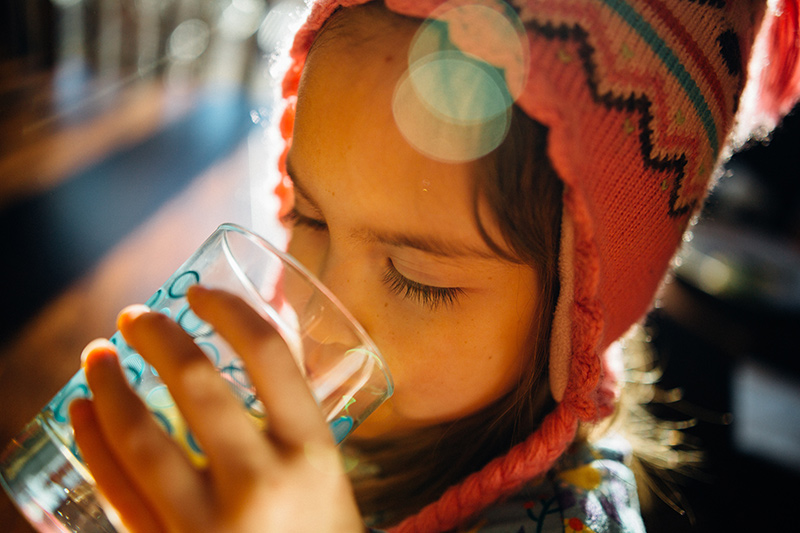
Dear Eartha, I am trying to cut back on my water use, but old habits are hard to break. I would like to raise my 4-year-old daughter with water conservation in mind. Do you have any tips?
It’s more important than EVER to protect our environment, and we’ve got to get younger generations excited about doing so. I am so glad that you asked this question because, luckily, there are lots of fun, easy ways to get kids involved in living a greener lifestyle.
Many of us take our high-quality water for granted. We tend to leave the tap running while doing the dishes, washing our hands, and when we shower. And while we are fortunate to live in an area where abundant fresh, clean water is easily accessible today, this may not be the case tomorrow. Water is one of Earth’s most precious resources, but with population growth – and the impacts of climate change – our plentiful resource is already shrinking. Everyone can make small adjustments at home that can go a long way toward making a big impact, especially if your little eco-warrior follows suit.
The following tips are simple and easy to grasp for young minds. Plus, if you do this every day, it will quickly become part of their lifestyle, too. Let’s face it, you’re inquiring about this so that your daughter – and the next generation – will live in a society where clean water sources will still be readily available.
Don’t Leave the Water Running Unnecessarily
Whether brushing your teeth, soaping hands, or cleaning the dishes, it’s easy to leave the water running out of convenience. Stress to your young one that turning the tap off, even for a few short minutes, can help save up to more than 500 gallons of water each month. When hand-washing dishes, fill up your sink with water instead of letting it simply run down the drain. Additionally, stress the importance of tightly turning off faucets. Avoid those slow drips that can waste a lot of water over time.
Finish the Water in the Cup or Bottle Before Asking for More
If your little one gets used to the idea of always having a full cup or bottle, they’ll never learn to finish their water before requesting more. Make sure to set an example by finishing yours first and let her know that she’ll have to finish every drop before getting more. In fact, you can even make it a game, “Make the water disappear!” This way you know water is not being wasted.
Water the Plants Carefully
Let’s face it, on a hot day it’s fun for people of all ages to play and splash with water outside. However, stop and think about just how much water your child is wasting – 15 gallons per minute – with a continuously-running hose. The next time your tyke wants to play with water outdoors, show her how to fill up and use a watering can instead. This helps to minimize spillage when watering plants. If you have an outside area, why not leave empty pails or buckets out when it’s raining and use that to water the plants? If you are really motivated, drain the water from cooking pasta into a large pot, and once it cools you can use it to water plants.
Take Shorter Showers, Not Baths
Now that your daughter is presumably of showering age, why not reserve baths for special occasions and stick to short showers as the norm? A shower only uses 10 to 25 gallons, while a bath can use up to 70 gallons. Remember, though, that you need to set the example first by showing her how to turn the tap on and off and how to maximize the time spent cleaning in order to conserve water. Try putting a (waterproof!) watch in the bathroom and cutting back on your own shower time.
Don’t Flush Tissue, Paper Towels, or Plastic Wrappers
While you are probably already setting an example by not flushing unnecessary items down the abode, this has been a favorite pastime for kids for decades. The thrill of watching something disappear into the swirling “black hole” of water keeps them going back for more. However, items that are not meant to be flushed can cause an obstruction and a backed-up toilet does not work efficiently, meaning more water is needed to do the job.
As we have seen this summer in Summit County, we are not immune to drought conditions. As you teach your daughter the necessity of water conservation, you’re handing her a valuable footing to build from as she grows. After all, we’ll be looking to her for new water solutions in the years to come.


